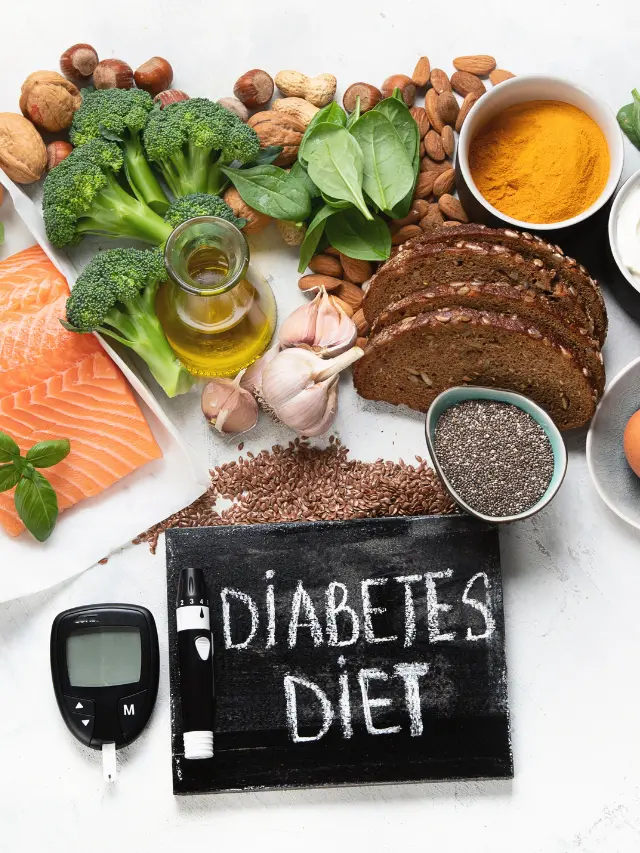Best diets for diabetics is a prevalent and challenging chronic condition that affects millions of people worldwide. Fortunately, a well-balanced and carefully chosen diet can be a powerful tool in managing diabetes. In this comprehensive guide, we will explore the diets for diabetics, offering insights into how the right dietary choices can help control blood sugar levels and improve overall health.
The Importance of the Best Diets for Diabetics
A well-considered diet is a cornerstone of diabetes management. It can help stabilize blood sugar levels, control weight, reduce the risk of complications, and improve overall health. Understanding the best diets for diabetics is essential for making informed dietary choices.
Low-Carbohydrate Diet
One of the best diets for diabetics is the low-carbohydrate diet. Carbohydrates are the primary source of glucose in the body, so controlling carb intake can have a significant impact on blood sugar levels. A low-carb diet typically includes foods like lean proteins, non-starchy vegetables, and healthy fats. It helps regulate blood sugar and reduce insulin resistance, making it an effective choice for many individuals with diabetes.
A low-carbohydrate diet works by limiting the intake of foods that quickly raise blood sugar levels. By doing so, it helps to prevent blood sugar spikes and crashes, contributing to better glycaemic control.
Mediterranean Diet
The Mediterranean diet, rich in fruits, vegetables, whole grains, and healthy fats, is another excellent option for diabetics. This diet is associated with improved heart health and better blood sugar control. It emphasizes the consumption of foods like olive oil, fish, nuts, and legumes. These nutrient-rich choices help manage diabetes while offering a wide range of flavors and meal options.
The Mediterranean diet is abundant in foods that are low on the glycaemic index, meaning they have a slower, more controlled impact on blood sugar levels. Additionally, the inclusion of healthy fats, like olive oil, can improve insulin sensitivity, making this diet beneficial for those with diabetes.
DASH Diet
The Dietary Approaches to Stop Hypertension (DASH) diet, designed to lower blood pressure, is also one of the best diets for diabetics. It emphasizes reducing sodium intake while promoting nutrient-rich foods like fruits, vegetables, lean proteins, and whole grains. The DASH diet can help diabetics manage blood pressure and maintain better blood sugar levels, reducing the risk of heart disease and stroke.
The DASH diet’s focus on whole, unprocessed foods, particularly fruits and vegetables, provides an array of essential vitamins and minerals that are beneficial for overall health and diabetes management.
Plant-Based Diet
A plant-based diet, recognized as one of the best diets for diabetics, focuses on fruits, vegetables, whole grains, legumes, and nuts. It is naturally high in fibre, which slows the absorption of sugar and helps control blood glucose levels. This diet also tends to be lower in saturated fats, contributing to better heart health and reducing the risk of cardiovascular complications in diabetics.
A plant-based diet is considered one of the best food for diabetic person. It can enhance insulin sensitivity, making it easier for the body to utilize glucose effectively. Moreover, it’s rich in antioxidants, which can protect against oxidative stress and inflammation, both of which are linked to diabetes complications.
Best Foods for Diabetic Person
Incorporating the right foods into your diet is crucial for managing diabetes effectively. Some of the best foods for diabetic individuals include:
- Leafy Greens: Spinach, kale, and collard greens are rich in nutrients and low in carbohydrates. They are excellent sources of vitamins and minerals without significantly impacting blood sugar levels.
- Fatty Fish: Salmon, mackerel, and sardines are high in omega-3 fatty acids, which are known to promote heart health. These fish can reduce inflammation and improve insulin sensitivity.
- Nuts: Almonds, walnuts, and pistachios are excellent sources of healthy fats and fiber. They can help control blood sugar and provide a satisfying snack option.
- Whole Grains: Oats, quinoa, and brown rice provide sustained energy without causing blood sugar spikes. These whole grains are rich in fibre and nutrients, making them preferable to refined grains for diabetics.
Conclusion
The best diets for diabetics are essential tools for managing blood sugar levels and improving overall health. Low-carb, Mediterranean, DASH, and plant-based diets are all excellent options for individuals with diabetes. Additionally, focusing on the best food for a diabetic person, such as leafy greens, berries, fatty fish, nuts, and whole grains, can further enhance diabetes management.
Read also Best Blood Test Lab in Pondicherry.



